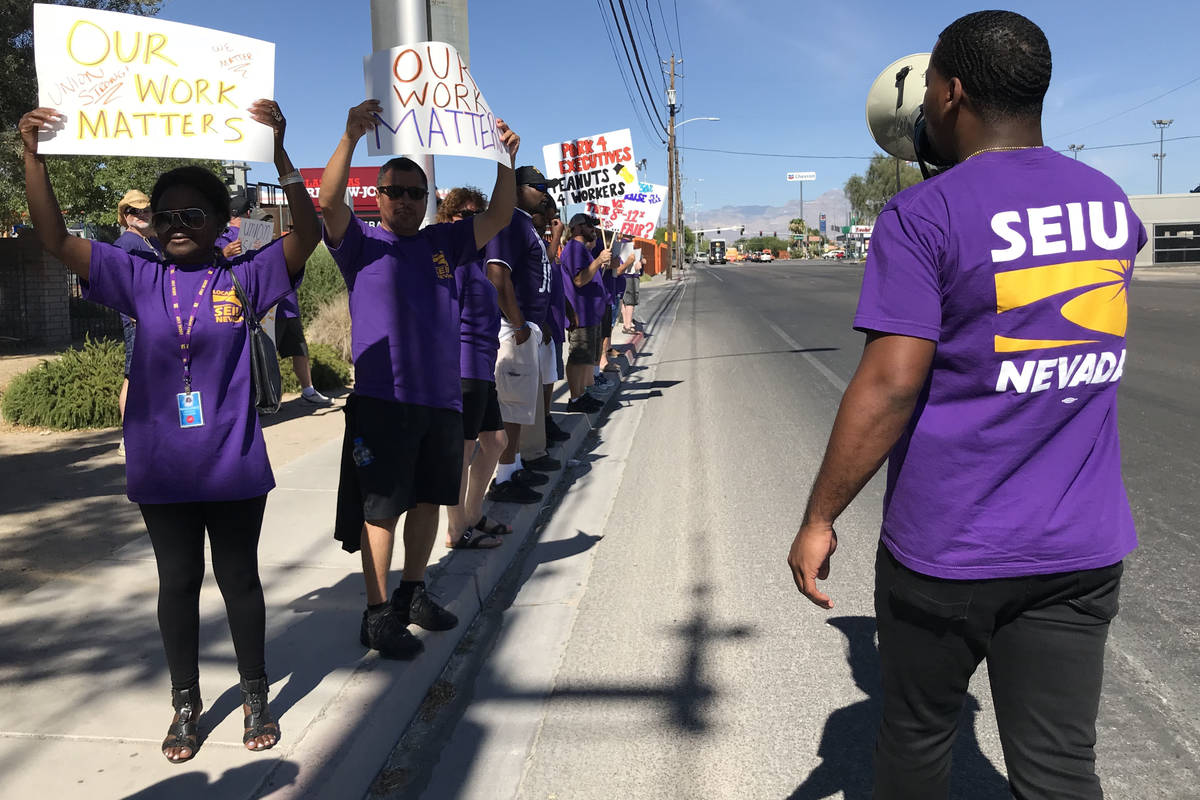EDITORIAL: Open collective bargaining to the public
Sunlight improves public policy. No wonder there is likely to be fierce opposition to allowing the public to observe collective bargaining sessions.
Most government general fund spending in Nevada goes to personnel costs. Salaries and benefits, including pension contributions and health insurance, can account for more than 85 percent of some agency budgets. For instance, those expenses constitute 87 percent of the Clark County School District’s general fund spending.
But while taxpayers foot the bill, they have little opportunity to observe the process that determines how their money will be spent. That’s because Nevada statutes exempt labor negotiations from the state’s Open Meeting Law.
Assemblyman Andy Matthews wants to change that. He’s sponsoring Assembly Bill 183, which removes that exemption. It would open labor negotiations to the public, just like a county commission or school board meeting.
The philosophical merit of this bill is obvious. The public has a right to see how its government is operating, especially when there’s so much money involved. It also has a right to see the performance of those who are supposed to be representing them at the bargaining table.
There’s also a policy need. Public employee salaries in Nevada have reached dizzying heights. Just spend a few minutes on TransparentNevada.com. In 2019, the last year complete data is available, around 300 government workers in Nevada raked in more than $300,000 a year in total compensation. More than 3,400 workers made in excess of $200,000, including benefits.
In Clark County, more than 250 firefighters made more than $200,000 in total compensation in 2019. The majority earned above $150,000 in total compensation.
These salaries didn’t happen overnight. They built up contract after contract in discussions government and union officials held behind closed doors, allowing union officials to make outlandish starting demands without having to fear public blowback. By the time taxpayers see the agreed-upon contract, it’s a fait accompli.
This bill is especially important as government agencies seek to navigate the aftermath of the coronavirus pandemic. Some local governments may have budget shortfalls. Other government entities, thanks to the largess of the federal government and unwitting future generations, may be experiencing a windfall.
Either way, employee compensation will play an outsized role in upcoming budget discussions.
Most Assembly Republicans are co-sponsoring this bill, along with two Republican senators. But it’s unlikely that Democrats, who received a disproportionate share of union political contributions, will give it much consideration.
That’s a mistake. Now more than ever, the public deserves the opportunity to evaluate these negotiations.





























